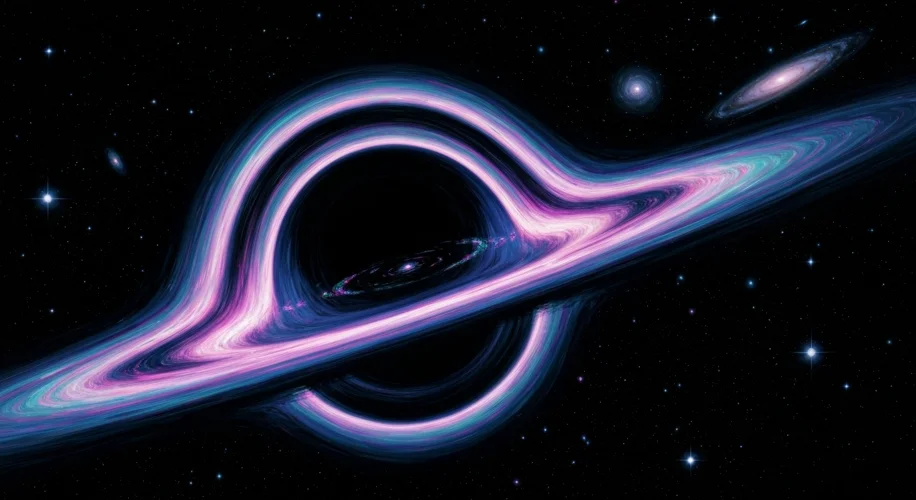Imagine a universe without black holes. It’s a strange thought, isn’t it? These cosmic enigmas, with gravity so strong nothing escapes, are destined to eventually disappear. But what happens to all the matter and energy they’ve consumed over billions of years? It’s a question that takes us to the very edge of our understanding of physics.
The Slow Fade: Hawking Radiation
So, how do black holes even fade away? The answer lies with Stephen Hawking and his groundbreaking work. Hawking radiation, as it’s called, is a theoretical process where black holes aren’t truly black at all. They emit a faint thermal radiation, a sort of cosmic whisper, due to quantum effects near their event horizon (the point of no return).
This process is incredibly slow. For a solar-mass black hole, it would take about 10^67 years to evaporate completely. For supermassive black holes, the timescale is even more mind-bogglingly vast – think 10^100 years or more!
The Information Paradox: A Cosmic Conundrum
Now, here’s where things get really interesting and a bit puzzling. Quantum mechanics tells us that information can never be truly destroyed. If you burn a book, the information about its words isn’t gone; it’s just scrambled into ash and smoke. But black holes, according to classical physics, seem to violate this principle.
When matter falls into a black hole, it’s thought to lose its identity. It’s just added to the black hole’s mass, spin, and charge. If the black hole then evaporates via Hawking radiation, which is purely thermal and random, it seems like all the specific details about the matter that fell in – the type of star it came from, the elements it contained – are lost forever. This is known as the ‘information paradox’.
Where Does the Information Go?
Physicists are still grappling with this. There are several leading ideas:
- Information Escapes with Radiation: Some theories suggest that the Hawking radiation isn’t entirely random. It might carry subtle information about what fell into the black hole, encoded in its radiation in a way we don’t yet understand. Think of it like a very, very complex message being broadcast.
- A Remnant is Left Behind: Another possibility is that black holes don’t evaporate completely. Instead, they might leave behind an incredibly dense, tiny remnant that holds all the information.
- Information is Lost (and Quantum Mechanics Needs a Rewrite): This is the most unsettling idea, suggesting that our current understanding of quantum mechanics might be incomplete, and information really can be destroyed in extreme conditions.
- Holographic Principle: A more abstract idea is that the information isn’t actually inside the black hole, but somehow encoded on its two-dimensional surface (the event horizon), like a hologram. As the black hole shrinks, this information is released.
What It Means for Us
While the evaporation of black holes is happening on timescales far beyond human comprehension, thinking about it helps us explore the fundamental laws of the universe. It pushes the boundaries of theoretical physics, forcing us to reconcile quantum mechanics with general relativity – two pillars of modern science that don’t always play nicely together.
So, the short answer is: we don’t definitively know what happens to everything a black hole swallows. But the quest to find out is one of the most exciting journeys in science today, reminding us how much more there is to discover about the cosmos.

